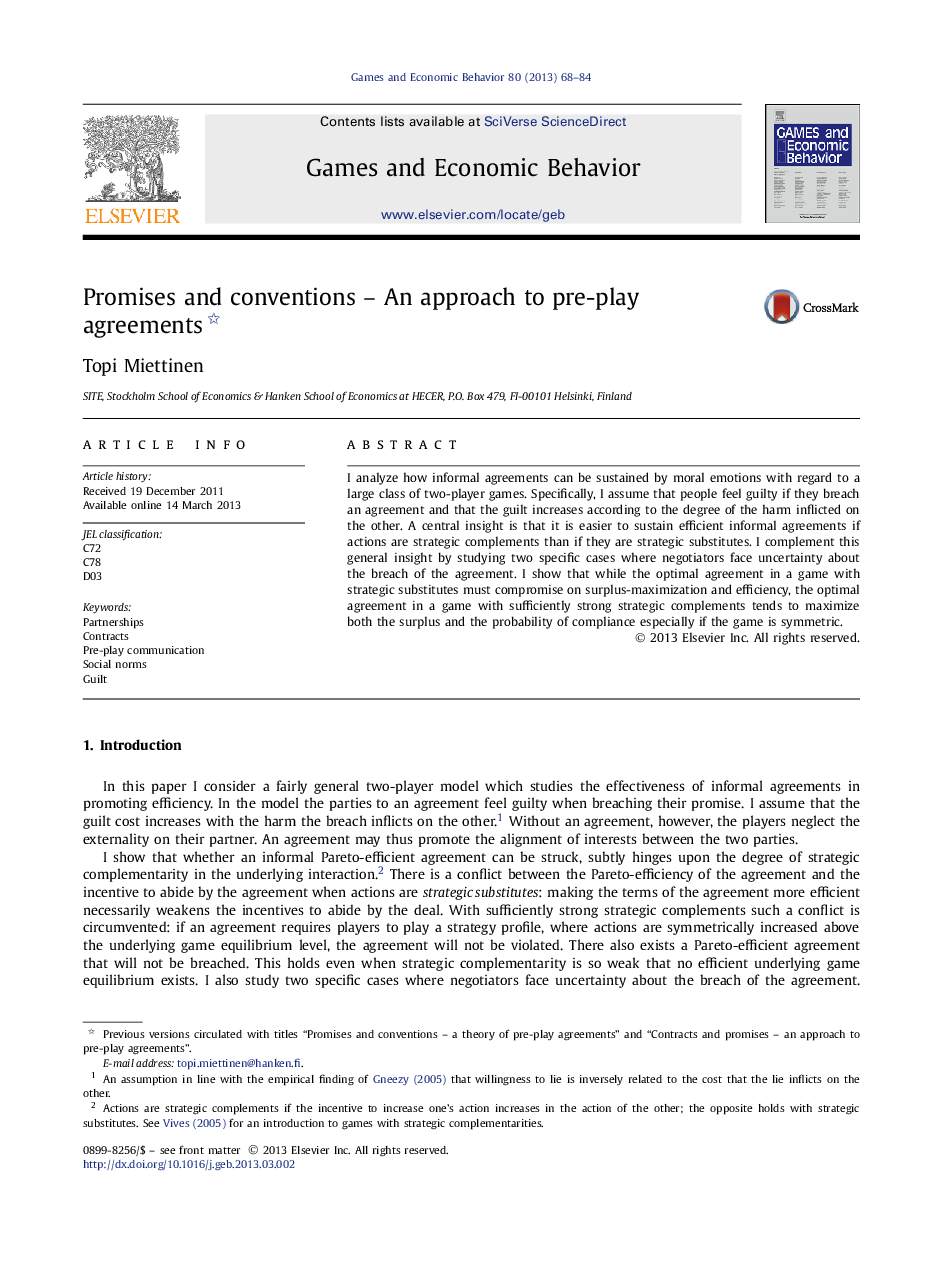| Article ID | Journal | Published Year | Pages | File Type |
|---|---|---|---|---|
| 5071803 | Games and Economic Behavior | 2013 | 17 Pages |
â¢The paper studies the impact of pecuniary incentives on the capacity of non-binding agreements to increase efficiency.â¢Bilateral promises are shown to be very effective in bringing about efficiency when actions are strategic complements.â¢Yet they deliver only marginal improvements when actions are strategic substitutes.â¢When negotiators choose an agreement facing uncertainty, the optimal agreement must compromise on surplus-maximization if actions are strategic substitutes.â¢The optimal agreement tends to maximize the surplus and the probability of compliance if actions are strong strategic complements.
I analyze how informal agreements can be sustained by moral emotions with regard to a large class of two-player games. Specifically, I assume that people feel guilty if they breach an agreement and that the guilt increases according to the degree of the harm inflicted on the other. A central insight is that it is easier to sustain efficient informal agreements if actions are strategic complements than if they are strategic substitutes. I complement this general insight by studying two specific cases where negotiators face uncertainty about the breach of the agreement. I show that while the optimal agreement in a game with strategic substitutes must compromise on surplus-maximization and efficiency, the optimal agreement in a game with sufficiently strong strategic complements tends to maximize both the surplus and the probability of compliance especially if the game is symmetric.
